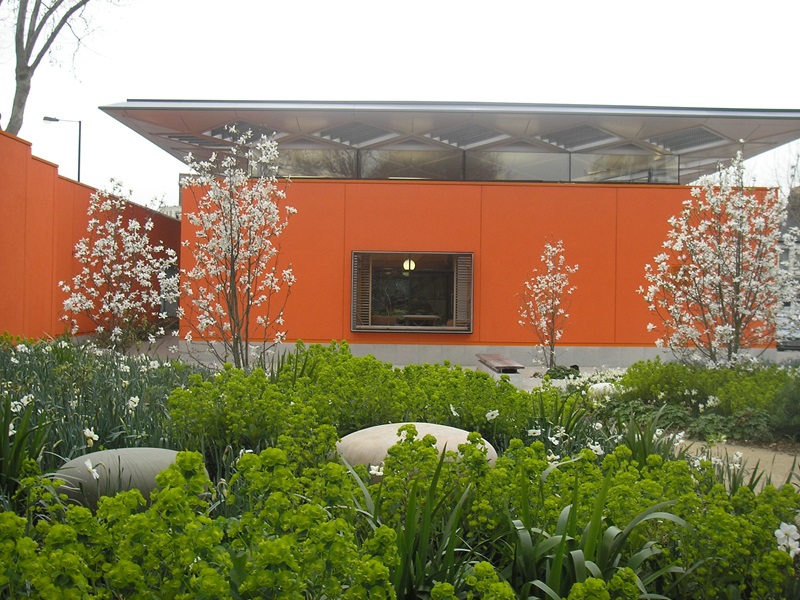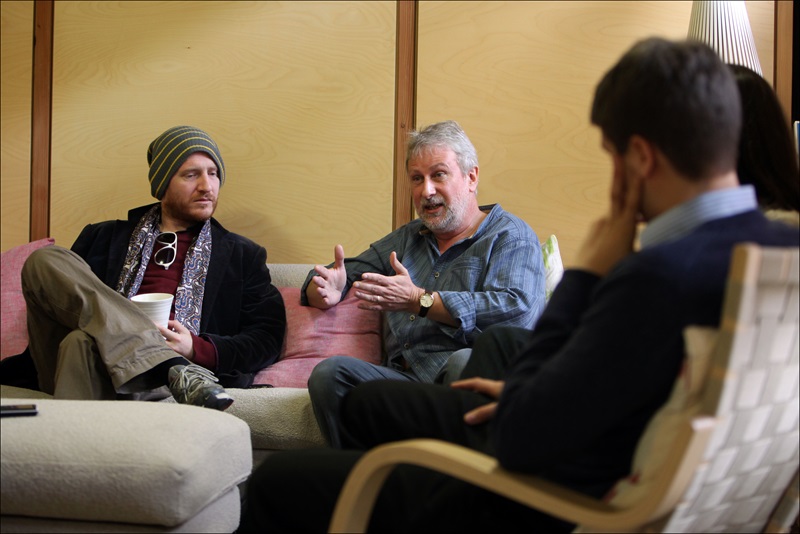Maggie's – a space for everyone affected by cancer
Maggie’s offers a haven of emotional, practical, and psychological support to those affected by cancer. Sinead Cope, centre head at Maggie’s West London, highlights the vital role staff play in collaboration with Charing Cross Hospital staff in supporting patients and their families.

What inspired you to become a nurse and to specialise in oncology care?
I always knew that I wanted to work in healthcare and nursing was something that I focused on, even as a young child. I trained at Charing Cross, surrounded by an amazing team, and gained an insight into so many people’s diverse cultural and health needs. Within my training, cancer was very much a space where I felt like I could make a difference to patients – through giving them treatments and helping them cope with the different side effects.
I've worked in the NHS for many years, including at Guy’s and St Thomas’, but when I came back to the Trust as a Macmillan nurse, Maggie’s opened my eyes to how our oncology service and Maggie’s work together to offer holistic, well-rounded support for patients and their families.
Maggie’s enables me to maintain all the skills I’ve learned throughout my career, but to put them into supporting people in a slightly different way.
What support does Maggie’s, West London provide and to whom?
Maggie's is a very homely space designed to be non-clinical, and people can come in when they want to speak to a healthcare professional. When people have to wait for a hospital appointment, you sometimes miss the moment that someone needs to talk. This is why no appointments or referrals are needed at Maggie’s.
We offer one to one support, group support, and practical support, without any cut off time of when that support finishes. There’s also a range of support available for people before they're even diagnosed with cancer, right through to diagnosis, treatment, and moving on after treatment. There’s support available for those who are living with an incurable cancer and bereavement support to friends and family afterwards. We also run a range of children’s support, including family days at weekends.
Cancer is an illness that can cause a ripple effect to everyone that a person loves, so we offer family and friends support for as long as they need.
Maggie’s centres couldn't function without working closely with colleagues in clinical care. We work with Macmillan nurses (who co-facilitate a lot of our support groups), ward nurses, chemo nurses, radiotherapy departments, outpatients and everybody that looks after people with cancer in the hospital. Staff can come into Maggie’s if they need a quiet space or support too.

Tell us about your role as Centre head of Maggie’s, West London.
My day starts at 8:00, making sure that the centre looks great and the team are ready for when the door opens at 9:00. Being the centre head also means operationally managing the building itself. I make sure that the place feels like home, as it’s designed to be.
I'm also very proudly a nurse and work here in a cancer support specialist role as well. I'm available to support anyone as they come through the door, as are my team and our volunteers.
Our drop-in service means that you're never sure what the conversation is going to be, or what patients and their friends and family might need from us. I also take on a pastoral role, supporting staff with the range of emotional stories they hear, alongside our psychologists who offer staff formal weekly supervision.
What do you love most about your role?
Working in a Maggie’s centre is different to working in a hospital. I've worked as a Macmillan nurse for 12 years, which is structured around clinics and multidisciplinary teams. At Maggie’s, we’re still the person that people reach out to for support, but because we deliberately have no access to medical notes, we go off what the person remembers from their conversation in the hospital and what they understand.
For this reason, it’s nice to see the patient perspective and to help them make sense of that and come up with questions for their next hospital appointment. Our job is to sit and be with people and because we do this in such a relaxed and comfortable space, people open up in a different way compared to a hospital setting.
We hear the real struggles of balancing life, families, work and what it’s like living alongside illness. It’s nice then as a team to find solutions that might help that person, but also let them have a quality of life alongside the challenges.
How do you personally seek support in your role?
Over the years you become more resilient, but I'm still human and of course there are stories that resonate with me more than others. I'm lucky to have a supportive team. My husband is also a bed manager at Charing Cross and we’ve got a football-crazy household of boys that keeps me living in the moment!
Can you tell us the story behind the centre?
There was a phenomenal lady in the mid 90s called Maggie Keswick Jencks. She was going through treatment for advanced breast cancer in Edinburgh. She had this idea of, alongside the NHS, having a space that allowed people to learn skills to live with their illness.
Alongside her family, friends and the doctors in the hospital, including her nurse Laura Lee who is now our CEO, they created the first ever Maggie’s centre on-site.
Sadly, Maggie passed away before the first centre opened in Edinburgh in 1996 and soon after other hospitals started to recognise that the support was invaluable.
Maggie's is now a national and international charity. We currently have 24 centres open around the UK and four international centres, the plan being to eventually have one on all 60 cancer hospitals in the UK. The one at Charing Cross was the first centre outside of Scotland and opened in 2008. It was designed by an amazing architect called Richard Rogers, who also designed the O2 and Terminal 5. Even though it's 17 years open in April, it still looks and feels like a new building.
